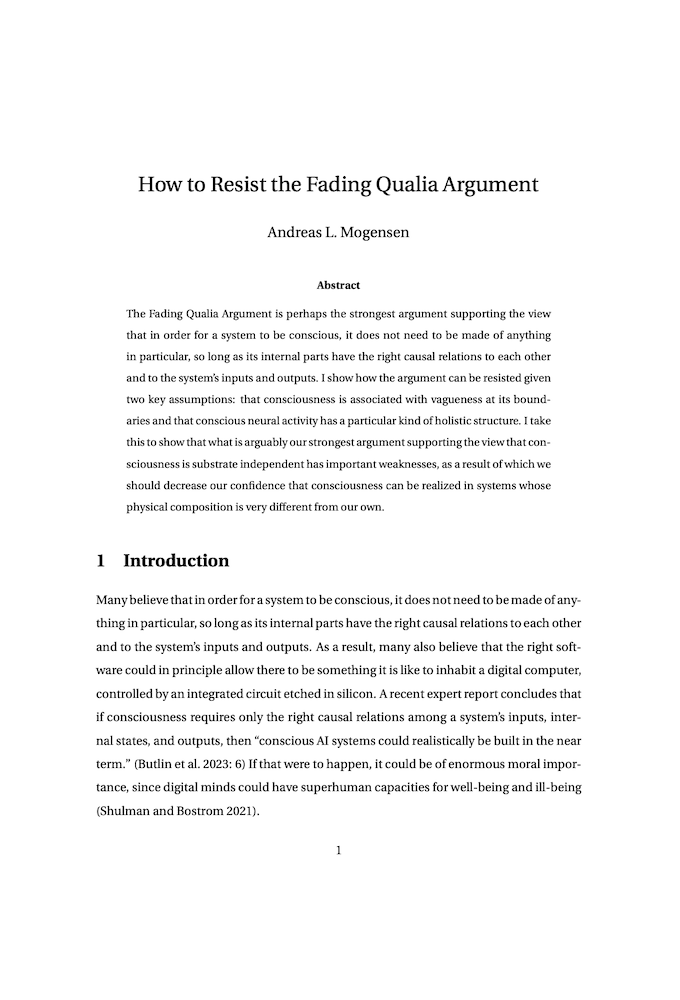How to resist the Fading Qualia Argument
Andreas Mogensen (Global Priorities Institute, University of Oxford)
GPI Working Paper No. 5-2024
The Fading Qualia Argument is perhaps the strongest argument supporting the view that in order for a system to be conscious, it does not need to be made of anything in particular, so long as its internal parts have the right causal relations to each other and to the system’s inputs and outputs. I show how the argument can be resisted given two key assumptions: that consciousness is associated with vagueness at its boundaries and that conscious neural activity has a particular kind of holistic structure. I take this to show that what is arguably our strongest argument supporting the view that consciousness is substrate independent has important weaknesses, as a result of which we should decrease our confidence that consciousness can be realized in systems whose physical composition is very different from our own.
Other working papers
Aggregating Small Risks of Serious Harms – Tomi Francis (Global Priorities Institute, University of Oxford)
According to Partial Aggregation, a serious harm can be outweighed by a large number of somewhat less serious harms, but can outweigh any number of trivial harms. In this paper, I address the question of how we should extend Partial Aggregation to cases of risk, and especially to cases involving small risks of serious harms. I argue that, contrary to the most popular versions of the ex ante and ex post views, we should sometimes prevent a small risk that a large number of people will suffer serious harms rather than prevent…
Longtermist institutional reform – Tyler M. John (Rutgers University) and William MacAskill (Global Priorities Institute, Oxford University)
There is a vast number of people who will live in the centuries and millennia to come. Even if homo sapiens survives merely as long as a typical species, we have hundreds of thousands of years ahead of us. And our future potential could be much greater than that again: it will be hundreds of millions of years until the Earth is sterilized by the expansion of the Sun, and many trillions of years before the last stars die out. …
Imperfect Recall and AI Delegation – Eric Olav Chen (Global Priorities Institute, University of Oxford), Alexis Ghersengorin (Global Priorities Institute, University of Oxford) and Sami Petersen (Department of Economics, University of Oxford)
A principal wants to deploy an artificial intelligence (AI) system to perform some task. But the AI may be misaligned and aim to pursue a conflicting objective. The principal cannot restrict its options or deliver punishments. Instead, the principal is endowed with the ability to impose imperfect recall on the agent. The principal can then simulate the task and obscure whether it is real or part of a test. This allows the principal to screen misaligned AIs during testing and discipline their behaviour in deployment. By increasing the…

